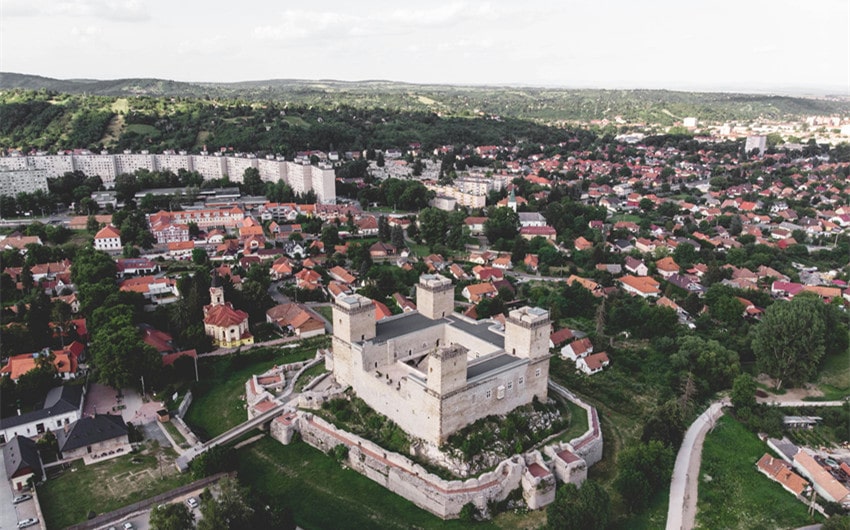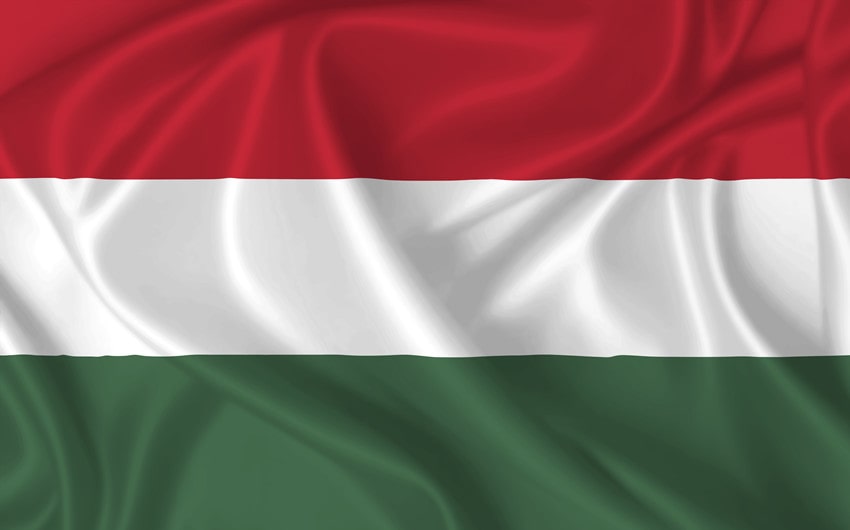120 Hungarian Last Names and the Stories Behind Them
Hungarian last names carry a rich tapestry of history, culture, and tradition. Whether derived from occupations, geographical locations, or personal characteristics, these surnames offer fascinating insights into the lives and identities of Hungarian families.
Understanding the origins and meanings behind Hungarian last names not only connects you to the past but also provides a deeper appreciation of the country’s diverse heritage. Whether you’re exploring your own family roots or simply curious about the unique features of these names, there’s much to discover in the world of Hungarian surnames.
Categories of Hungarian Last Names

1. Occupational Names
Occupational surnames in Hungary often reflect the trades and professions that were essential to the community. These names were typically passed down from generation to generation, signifying the family’s expertise or craft. Many of these surnames, such as Kovács (smith) or Molnár (miller), remain common in Hungary today, offering a glimpse into the historical livelihoods of Hungarian families.
- Kovács – Derived from the word for “smith,” indicating someone who worked as a blacksmith.
- Molnár – Means “miller,” referring to someone who operated a mill.
- Szabó – Translates to “tailor,” indicating a person who made or altered clothing.
- Pék – Means “baker,” referring to someone who baked bread and other goods.
- Varga – Refers to a “shoemaker” or “leather worker.”
- Halász – Means “fisherman,” indicating someone who caught fish for a living.
- Mészáros – Translates to “butcher,” someone who slaughtered animals and sold meat.
- Lakatos – Means “locksmith,” a person who worked with locks and metal fittings.
- Keresztes – Refers to a “crusader” or someone involved in religious wars.
- Kőműves – Means “mason,” indicating someone who worked with stone or bricks.
- Borbély – Translates to “barber,” someone who cut hair and shaved beards.
- Takács – Means “weaver,” indicating someone who wove fabrics.
- Csermely – Refers to a “tanner,” someone who processed animal hides.
- Csizmadia – Means “bootmaker,” indicating a person who made or repaired boots.
- Fodrász – Translates to “hairdresser,” someone who styled hair.
- Gulyás – Refers to a “herdsman,” particularly one who tended cattle.
- Hajós – Means “boatman,” indicating someone who worked on boats or ships.
- Asztalos – Translates to “carpenter,” a person who worked with wood.
- Bognár – Means “wheelwright,” someone who made or repaired wheels.
- Cukrász – Refers to a “confectioner,” someone who made sweets and pastries.
- Gazda – Means “farmer” or “landowner.”
- Gyertyános – Refers to a “candlemaker.”
- Szakács – Means “cook” or “chef.”
- Puskás – Translates to “gunsmith,” someone who made or repaired firearms.
- Tímár – Refers to a “tanner,” indicating a person who processed animal hides into leather.
2. Geographical Names
Geographical surnames are derived from locations, regions, or natural features, indicating where a person or family originated. These names often reflect the landscape, towns, or regions associated with the family. Whether it’s Tóth, indicating Slovak roots, or Budai, meaning someone from Buda, these surnames carry with them a sense of place and heritage, connecting individuals to their ancestral homelands.
- Balogh – Possibly related to a region, often interpreted as “left-handed” but could be linked to a place.
- Tóth – Indicates Slovak origin or someone from Slovakia.
- Erdős – Refers to someone from a forested area.
- Farkas – Means “wolf,” possibly indicating a region associated with wolves.
- Halmi – Refers to someone from a marshy or low-lying area.
- Kertész – Means “gardener,” possibly linked to a place with gardens.
- Pataki – Indicates someone from a place with a stream or river.
- Szilágyi – Refers to a place associated with willow trees.
- Veres – Could be linked to an area with red soil or rocks.
- Hegedűs – Possibly from a place known for fiddle players or musicians.
- Kisfaludy – Indicates origin from a small village.
- Kolozsvári – Refers to someone from Cluj-Napoca, a city in Romania.
- Debreczeni – Indicates origin from Debrecen, a major city in Hungary.
- Székely – Refers to someone from Székely Land, a Hungarian-speaking region in Romania.
- Csongrádi – Indicates origin from Csongrád, a town in Hungary.
- Bácsi – Refers to someone from Bács, a region in Hungary.
- Soproni – Indicates origin from Sopron, a city in Hungary.
- Pesti – Refers to someone from Pest, a part of Budapest.
- Szombathelyi – Indicates origin from Szombathely, a city in Hungary.
- Esztergomi – Refers to someone from Esztergom, a historic city in Hungary.
- Budai – Indicates origin from Buda, one half of Budapest.
- Nyíregyházi – Refers to someone from Nyíregyháza, a city in Hungary.
- Makói – Indicates origin from Makó, a town in Hungary.
3. Descriptive Names
Descriptive surnames in Hungary often convey physical characteristics, personality traits, or other notable features. These names were likely given to describe an individual’s appearance or demeanor, such as Nagy (big) or Fekete (black). Over time, these descriptive terms became fixed as family names, preserving a snapshot of the characteristics that once defined the family.
- Nagy – Means “big” or “great,” possibly describing physical stature or importance.
- Kis – Means “small,” often used to describe size or youth.
- Fekete – Means “black,” possibly referring to hair or complexion.
- Szőke – Means “blonde,” describing hair color.
- Fehér – Means “white,” possibly describing hair or skin tone.
- Vörös – Means “red,” often referring to hair color.
- Barna – Means “brown,” describing hair or eye color.
- Sárga – Means “yellow,” potentially describing complexion or hair.
- Kékes – Means “bluish,” possibly referring to eye color.
- Széles – Means “broad,” describing a physique.
- Vékony – Means “thin,” describing body type.
- Hosszú – Means “long,” potentially describing height or hair length.
- Mély – Means “deep,” possibly referring to voice.
- Görbe – Means “crooked,” describing posture or physical characteristics.
- Erős – Means “strong,” indicating physical strength.
- Csendes – Means “quiet,” describing a calm or reserved personality.
- Bátor – Means “brave,” indicating courage.
- Vidám – Means “cheerful,” describing a joyful personality.
- Szomorú – Means “sad,” describing a melancholic disposition.
- Híres – Means “famous,” indicating renown.
- Szép – Means “beautiful,” describing physical attractiveness.
- Ravasz – Means “cunning,” describing cleverness or shrewdness.
- Gazdag – Means “wealthy,” indicating affluence.
- Gyenge – Means “weak,” describing physical frailty.
- Hideg – Means “cold,” possibly referring to demeanor or temperament.
4. Patronymic Names
Patronymic surnames are based on the given names of ancestors, particularly fathers, and they signify lineage or heritage. In Hungary, these names often include suffixes like -fi or -i, which mean “son of.” Examples like Péterfi (son of Péter) or Jánosi (son of János) reflect the deep respect for family lineage and ancestry in Hungarian culture.
- Péterfi – Means “son of Péter.”
- Jánosi – Means “son of János.”
- Istvánfi – Means “son of István.”
- Miklósi – Means “son of Miklós.”
- Gáborfi – Means “son of Gábor.”
- Lászlófi – Means “son of László.”
- Antalfy – Means “son of Antal.”
- Bálintfi – Means “son of Bálint.”
- Tamási – Means “son of Tamás.”
- Zoltánfi – Means “son of Zoltán.”
- Ferenczi – Means “son of Ferenc.”
- Benedekfi – Means “son of Benedek.”
- Imrédi – Means “son of Imre.”
- Dávidfi – Means “son of Dávid.”
- Mátéfi – Means “son of Máté.”
- Attilafi – Means “son of Attila.”
- Andrássy – Means “son of András.”
- Györgyfi – Means “son of György.”
- Zsombori – Means “son of Zsombor.”
- Sándorfi – Means “son of Sándor.”
- Benczúr – Means “son of Bence.”
- Balázsi – Means “son of Balázs.”
- Mihályfi – Means “son of Mihály.”
- Pálfi – Means “son of Pál.”
- Lukácsi – Means “son of Lukács.”
5. Ethnic and Cultural Names
Ethnic and cultural surnames in Hungary often indicate a family’s heritage or the cultural group they belong to. These names reflect the diverse ethnic landscape of Hungary, where various groups, such as Slovaks, Croatians, Germans, and Jews, have coexisted for centuries. Surnames like Tóth (Slovak) or Németh (German) highlight the rich cultural mosaic that characterizes Hungarian society.
- Horváth – Indicates Croatian origin.
- Németh – Indicates German origin.
- Lengyel – Indicates Polish origin.
- Orosz – Indicates Russian origin.
- Cseh – Indicates Czech origin.
- Rácz – Indicates Serbian origin.
- Görög – Indicates Greek origin.
- Zsidó – Indicates Jewish origin.
- Török – Indicates Turkish origin.
- Oláh – Indicates Romanian origin.
- Román – Indicates Romanian origin.
- Szász – Indicates Saxon or German origin.
- Cigány – Refers to Roma/Gypsy origin.
- Bolgár – Indicates Bulgarian origin.
- Basarab – Refers to Romanian/Moldovan origin.
- Havasalföldi – Indicates origin from Wallachia, Romania.
- Vallach – Refers to Romanian origin.
- Lipcsei – Indicates origin from Leipzig, Germany.
- Háber – Indicates Jewish origin.
- Zágrábi – Indicates origin from Zagreb, Croatia.
- Csángó – Refers to the Hungarian-speaking people in Romania.
- Szlovák – Indicates Slovak origin.
Unique Features of Hungarian Last Names

Hungarian last names possess several distinctive characteristics that set them apart from surnames in other cultures. These features are deeply rooted in the language, history, and cultural practices of Hungary, offering insights into the country’s rich heritage. Here’s an exploration of some of the unique aspects of Hungarian surnames:
1. Linguistic Characteristics
Hungarian surnames often reflect the structure and nuances of the Hungarian language, which is known for its agglutinative nature. This means that names are frequently formed by adding prefixes or suffixes to root words, resulting in a variety of surname types that are unique to Hungary.
- Use of Suffixes: One of the most notable features of Hungarian surnames is the use of suffixes to convey meaning or origin. For instance:
- “-i” Suffix: This suffix is commonly used to indicate origin or belonging, similar to the English “-ian” or “-ite.” For example, “Budai” means “from Buda,” a part of Budapest.
- “-fi” Suffix: This suffix is often used in patronymic surnames, meaning “son of.” For instance, “Péterfi” means “son of Péter.”
- “-szky” or “-czky” Suffix: These suffixes are often found in noble surnames, such as “Batthyányi.” They add a sense of nobility or high status to the name.
- Compound Names: Hungarian surnames can be compounded, combining two elements to form a single surname. This feature is often used to reflect both a profession and a place of origin, such as “Szabófalvi,” which might mean “tailor from the village.”
- Vowel Harmony: The Hungarian language is known for its vowel harmony, where suffixes are chosen based on the vowels in the root word. This feature can be observed in the way surnames are formed and how they change with different grammatical contexts.
2. Influence of Nobility
Hungarian nobility has had a significant impact on the development of surnames. During the feudal era, noble families often adopted surnames that reflected their estates, titles, or noble status. These names were not only markers of social rank but also played a role in preserving family heritage and lineage.
- Noble Surnames: Many Hungarian noble families have surnames that are well-known and carry a sense of prestige. For example:
- Esterházy: One of the most prominent noble families in Hungary, with a name that has become synonymous with power and influence.
- Zichy: Another noble surname that indicates a long-standing family history in Hungarian aristocracy.
- Rákóczi: A noble family name associated with Hungarian independence and rebellion, particularly during the 18th century.
- Title-Based Names: Some surnames were derived from noble titles or roles within the court. These names often included the title itself or a variation of it, signifying the family’s importance in the royal or noble hierarchy.
- Land-Based Names: Many noble surnames were derived from the estates or regions owned by the family. For example, “Batthyányi” refers to a noble family associated with the Batthyány estate. These names often became hereditary, passed down through generations.
3. Cultural and Historical Impact
Hungarian last names have been shaped by various historical events and cultural influences over the centuries. The country’s position in Central Europe, combined with its complex history of invasions, migrations, and political changes, has left a lasting mark on its surnames.
- Turkish Influence: During the Ottoman occupation of Hungary in the 16th and 17th centuries, Turkish culture and language left an imprint on Hungarian surnames. Some names reflect Turkish origins or were adapted during this period.
- Austro-Hungarian Influence: The Austro-Hungarian Empire, which existed from 1867 to 1918, also played a significant role in the evolution of Hungarian surnames. Germanic and Austrian influences are evident in some surnames, especially in regions that were heavily influenced by German-speaking populations.
- Jewish Surnames: The Jewish community in Hungary has contributed unique surnames that often reflect religious or cultural identity. Names like “Háber” and “Weisz” (meaning “white” in Yiddish) are examples of Jewish surnames that have become integrated into Hungarian society.
- Regional Variations: Hungary’s diverse geography has led to regional variations in surnames. Names can vary significantly depending on whether a family originates from the plains, mountainous regions, or urban centers. This regional diversity adds another layer of uniqueness to Hungarian surnames.
- Multicultural Influences: Hungary’s location as a crossroads in Europe has exposed it to various cultural influences, including Slavic, Germanic, and Romanian. These influences are reflected in surnames that may have Slavic or Germanic roots but have been adapted to fit the Hungarian language.
4. The Evolution of Surnames
Over time, Hungarian surnames have evolved, adapting to changing social, political, and cultural contexts. This evolution reflects the dynamic nature of Hungarian society and the ability of its people to preserve their identity while embracing change.
- Modernization of Surnames: In the modern era, some Hungarian surnames have been simplified or altered to fit contemporary language use. For example, older, more complex surnames may have been shortened or modified to be easier to pronounce or write.
- Globalization and Cultural Exchange: With increased globalization and cultural exchange, Hungarian surnames have also been influenced by international trends. Families with Hungarian roots living abroad may adapt their surnames to better fit the linguistic norms of their new countries, leading to variations in spelling or pronunciation.
- Preservation of Heritage: Despite these changes, many Hungarian families continue to preserve their original surnames, seeing them as a crucial link to their heritage and cultural identity. The preservation of these names is a testament to the enduring significance of family and tradition in Hungarian society.






